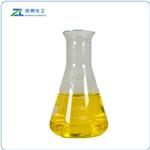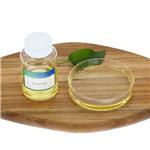Description
Polysorbate 80, a surfactant, has been widely used as a solvent for pharmacological experiments. Tween 80 can also reduce bacterial attachment and inhibit biofilm formation.
Definition
DrugBank: Polysorbate 80 is a hydrophilic nonionic surfactant. It is utilized as a surfactant in soaps and cosmetics and also as a lubricant in eye drops. In food or pharmaceutical products, it can act as an emulsifier. Polysorbate 80 is an excipient that is used to stabilize aqueous formulations of medications for parenteral administration or vaccinations. A solubilizing agent acts as a surfactant and increases the solubility of one agent in another. A substance that would not normally dissolve in a particular solution is able to dissolve with the use of a solubilizing agent. It is also known as an emulsifier, which helps ingredients mix together and prevent separation, and water-containing small amounts of salts, and is included in several vaccines licensed in the USA.
Biochem/physiol Actions
Polysorbate 80 has low-grade toxicity in both mice and rats when administered by the intraperitoneal and oral routes, producing mild to moderate depression of the central nervous system, significant reductions in locomotor activity and rectal temperatures, demonstration of ataxia and paralysing activity, and enhancement of pentobarbital sleep duration.
It had a dose-dependent antihypertensive effect in dogs administered intravenously.
Polysorbate 80 had no direct stimulatory or relaxant effect on the guinea-pig ileum or rat uterus, but it antagonised contractions induced by acetylcholine, histamine, barium, 5-hydroxytryptophan and carbachol in a dose-dependent manner.
A direct relaxant effect was observed on rabbit jejunum. Dose-dependent myocardial inhibition was observed on guinea pig and rabbit paired atrial preparations. In electrically driven guinea pig left atrial preparations, it exhibited a dose-dependent negative inotropic effect. It does not induce diuresis in rats below a dose of 2.5 ml/kg.



